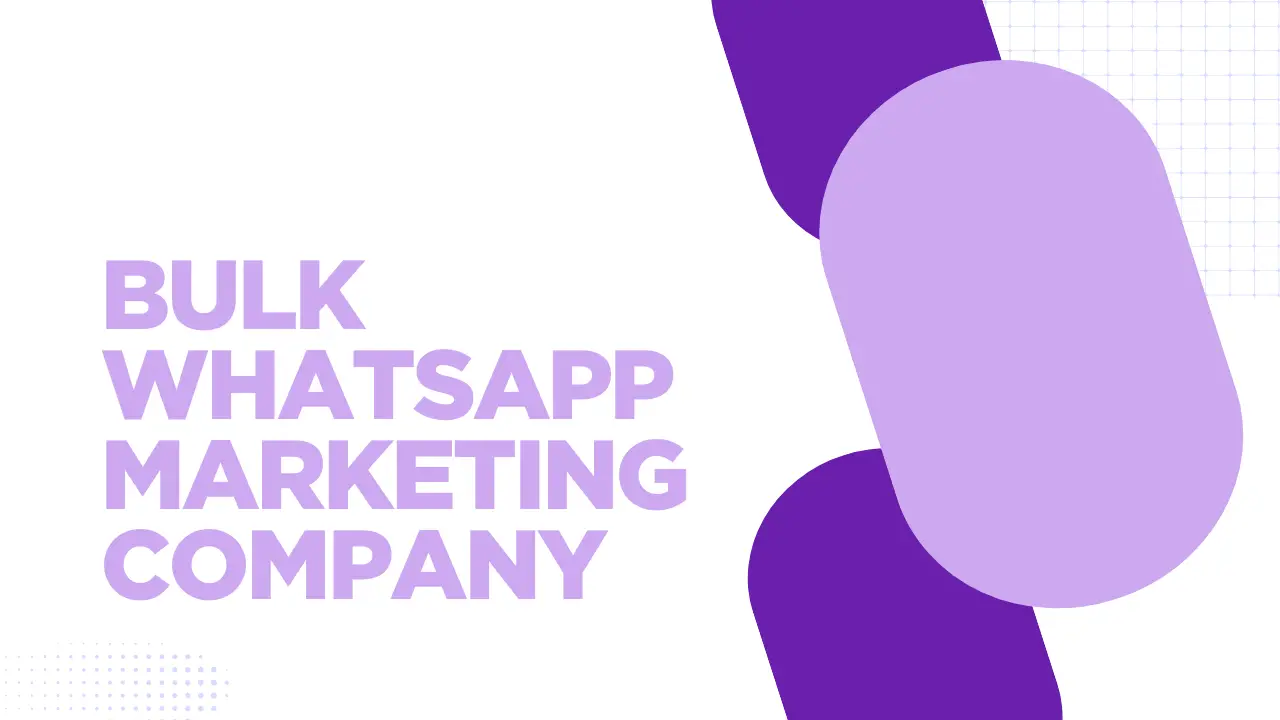How Do These Companies Operate? The Mechanics Behind the Service
So, how do these "bulk WhatsApp marketing companies" actually work? The process typically involves a few key steps. First, the business provides the company with a list of phone numbers, often a large Tired of fake leads? Get 100% verified email contacts from phone number list database they've collected over time. The company then uses specialized software or APIs (Application Programming Interfaces) to send messages to this list en masse. These messages can range from promotional offers and product updates to event invitations and simple announcements. The companies often offer features like message scheduling, personalized messaging (using customer names, for example), and even basic analytics to track delivery and read rates. They may also claim to have "verified" phone number lists, though the legitimacy of these lists is often questionable. The underlying technology can vary, but the goal is always the same: to send a large volume of messages in the shortest amount of time possible.

The Crucial Caveat: The Risks and Potential Pitfalls
While the promise of bulk WhatsApp marketing is enticing, it's crucial to understand the significant risks and potential pitfalls. The most glaring issue is the violation of WhatsApp's Terms of Service. WhatsApp explicitly prohibits bulk and automated messaging. Using third-party tools to send unsolicited messages can lead to your business's WhatsApp account being permanently banned. This isn't just a slap on the wrist; it can mean losing a vital communication channel with your legitimate customers. Furthermore, sending spammy messages can seriously damage your brand's reputation. No one likes receiving unsolicited advertisements, and this can lead to negative reviews, a loss of customer trust, and a general perception of your business as unprofessional and spam-heavy. The potential for a quick win is often overshadowed by the long-term damage this can cause.
The Dark Side: Data Privacy and Ethical Concerns
Beyond the technical and reputational risks, there are serious ethical and legal concerns to consider. Where do these companies get their phone number lists? Many businesses that engage in bulk WhatsApp marketing are using lists of phone numbers they've acquired without explicit consent. This is a massive violation of data privacy laws like GDPR and CCPA, which can result in hefty fines. Furthermore, sending messages to people who haven't opted in is simply unethical. It's an invasion of their personal space and a disrespect for their privacy. A reputable business should always prioritize customer consent and build its marketing efforts on a foundation of trust. Engaging in practices that disregard these principles is not only illegal in many regions but also a recipe for a business's ultimate failure.
A Better Alternative: The Official WhatsApp Business API
So, what's the right way to leverage WhatsApp for your business? The answer lies in the official WhatsApp Business API. This is the legitimate, sanctioned way to communicate with your customers on a larger scale. The API allows businesses to send notifications, offer customer support, and engage in meaningful conversations with customers who have opted in. It's a completely different approach than "bulk marketing." The focus is on building relationships, not blasting out unsolicited messages. The API requires a clear opt-in from the customer, ensuring you're only communicating with people who actually want to hear from you. This not only keeps you compliant with WhatsApp's policies but also builds a foundation of trust and respect with your customer base.
Conclusion: A Call for Strategic and Ethical Marketing
In conclusion, while the idea of a "bulk WhatsApp marketing company" might seem like a quick and easy solution, it's a path fraught with risk. The potential for account bans, reputational damage, and legal trouble far outweighs any short-term gains. Instead of focusing on quantity, businesses should prioritize quality and ethical marketing practices. Leveraging the official WhatsApp Business API, building an opt-in list, and focusing on creating valuable, engaging content will not only keep your business on the right side of the law but also foster genuine customer loyalty and long-term success. The future of marketing isn't about spamming; it's about building meaningful connections, and that's a philosophy a bulk marketing company can never truly deliver.